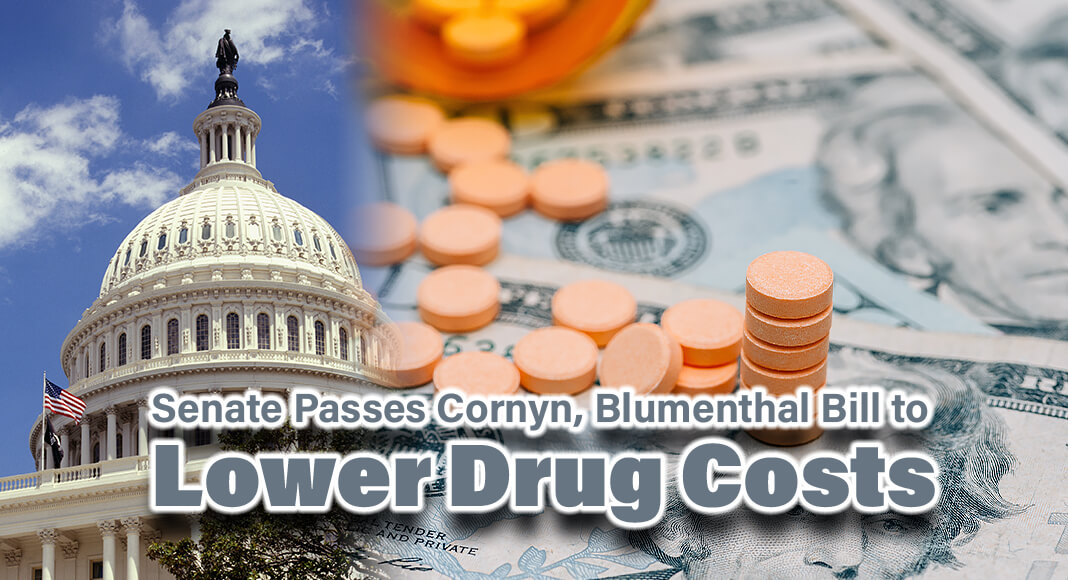
Texas Border Business
WASHINGTON – U.S. Senators John Cornyn (R-TX) and Richard Blumenthal (D-CT) issued the following statements after their Affordable Prescriptions for Patients Act, which would help lower drug prices by preventing bad actors in the pharmaceutical industry from deliberately abusing the patent system, passed the Senate unanimously:
“Anti-competitive practices from companies abusing the patent system have caused Texans’ costs at the pharmacy counter to skyrocket,” said Sen. Cornyn. “This long-overdue legislation would promote competition and lower prices for patients without standing in the way of innovation, and I urge my colleagues in the House to pass it as soon as possible.”
“Today, we take a momentous step forward in our efforts to lower Americans’ prescription drug costs,” said Sen. Blumenthal. “Our bipartisan, commonsense measure to crack down on Big Pharma’s shameless abuse of the patent system will protect competition and reduce prices at the pharmacy. Patients must be able to afford critical medicine, and I will continue fighting tooth and nail against Pharma’s anti-competitive practices that drive up costs for consumers.”
This legislation is cosponsored by Senate Judiciary Committee Chairman Dick Durbin (D-IL) and Senators Ted Cruz (R-TX), Amy Klobuchar (D-MN), Chuck Grassley (R-IA), Peter Welch (D-VT), Mike Braun (R-IN), and Lisa Murkowski (R-AK).
Background:
Some pharmaceutical manufacturers have been deliberately abusing the patent system to prevent potential competitors from entering the marketplace using tactics like erecting patent thickets, which slow the entry of lower-cost biosimilar products.
The Affordable Prescriptions for Patients Act puts an end to practices that prioritize profits for pharmaceutical companies ahead of Americans’ health. By stopping abuses of our patent system, this legislation will pave the way for biosimilars to compete with branded drugs and aggressively lower drug prices for consumers in the process.
Biosimilars are to biologics what generic drugs are to branded drugs. In 2010, Congress enacted a law designed to resolve any patent litigation quickly before a biosimilar is introduced to the market, creating a patent dispute resolution process known as the “patent dance.” Under current law, however, there are no limits on the number of patents that a branded manufacturer of biologics can assert during the patent dance – leading some companies to abuse a process designed to facilitate biosimilar entry, not hinder it.
This bill places a reasonable limit on the number of patents a manufacturer can contest, preventing a “patent thicket.” This will help deter branded manufacturers of biologics from gaming the system to increase the number of patents they assert, while preserving the incentives provided by the patent system to encourage the core innovation that produces new biologic treatments in the first place. Senators Cornyn and Blumenthal remain committed to addressing anticompetitive practices like product hopping to ensure lower costs for patients.
















